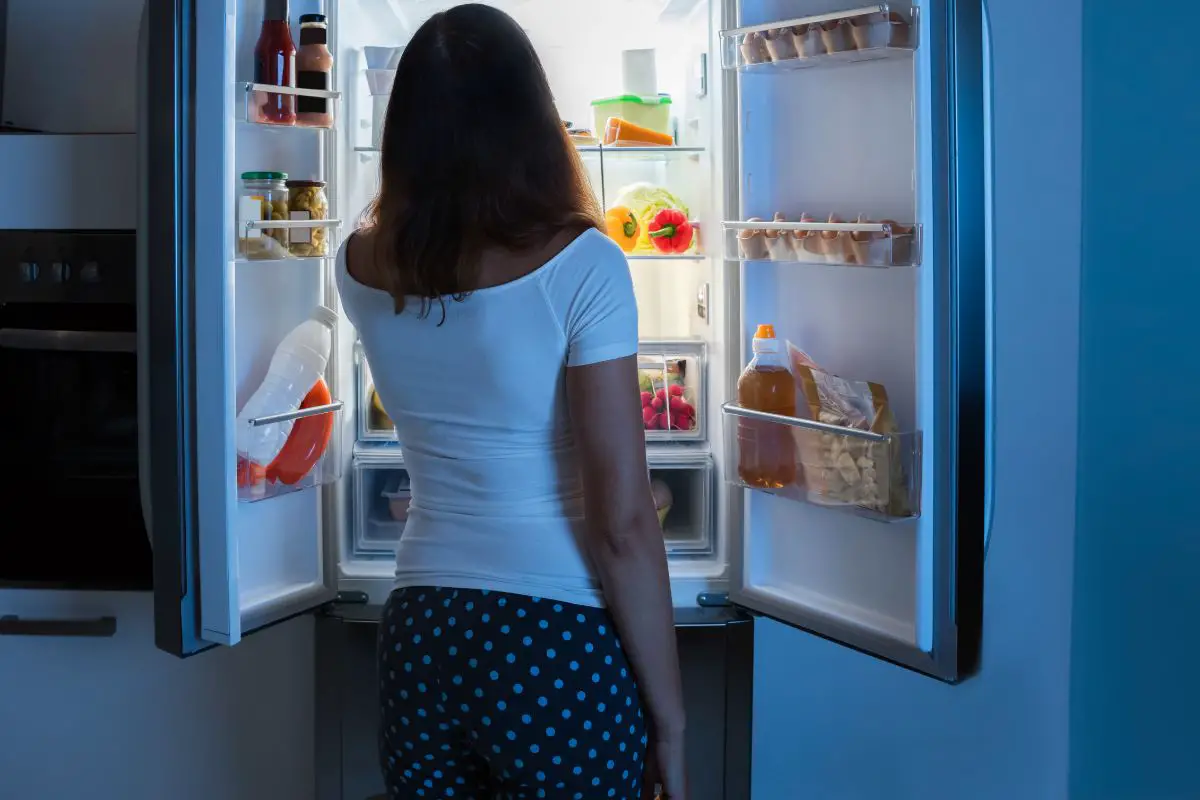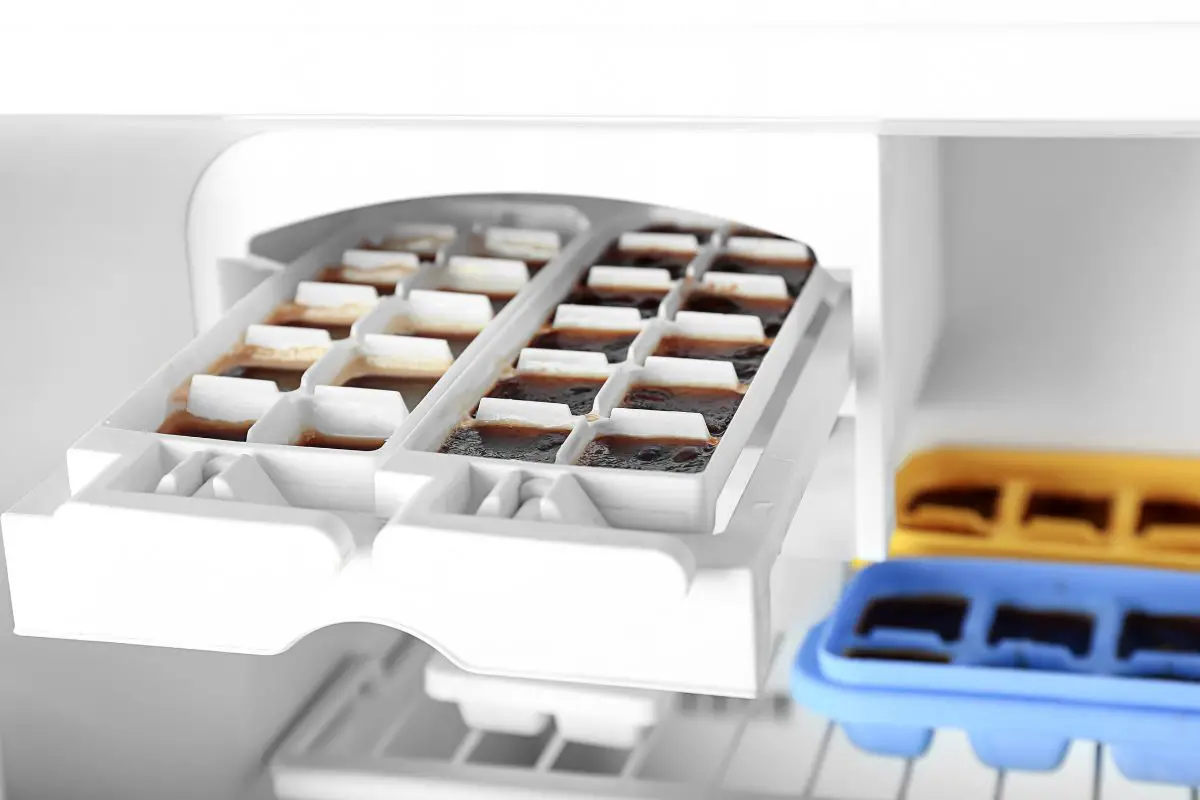Coffee, the beloved elixir that fuels our mornings and provides a much-needed jolt of energy, is often stored in the refrigerator for prolonged freshness. However, the question remains: how long can coffee truly remain good in the fridge?

In this article, we will delve into the ideal storage conditions for coffee, how to determine its freshness, and the factors that can affect its shelf life. While the fridge may seem like a safe haven for preserving the rich and robust flavors of coffee, it is essential to understand the limitations and potential risks associated with storing this beloved beverage.
By adhering to safe practices, we can extend the lifespan of coffee in the fridge and explore creative ways to make the most of every drop. So, let us embark on a journey to unravel the mysteries of coffee storage and unlock the secrets to savoring its taste for as long as possible.
Key Takeaways
- Coffee should be stored in an airtight container away from moisture, odors, and contaminants in the back of the fridge to avoid temperature fluctuations.
- The freshness of coffee is determined by the roasting date, with beans losing 50% of their aroma within 2 weeks after roasting.
- Shelf life of brewed coffee in the fridge varies depending on the type of coffee, ranging from 1-2 weeks for regular brewed coffee, decaffeinated brewed coffee, cold brew coffee, and instant coffee, to 1 week for flavored brewed coffee.
- Factors such as roast level, bean quality, and additives can affect the shelf life of coffee, with darker roasts and higher quality beans lasting longer, while additives can alter flavor, sweetness, texture, and shelf life.
Ideal Storage Conditions for Coffee in the Fridge
The optimal storage conditions within the refrigerator for coffee are essential in preserving its freshness and flavor for an extended period. To maintain the quality of coffee, it is important to store it properly in the fridge.
First and foremost, coffee should be kept in an airtight container to prevent exposure to moisture, odors, and other contaminants. This ensures that the coffee retains its natural flavors and does not absorb any unwanted smells from the refrigerator.
Additionally, the container should be placed on a shelf towards the back of the fridge, away from the door. This is because the temperature near the door fluctuates more compared to the back, which can affect the coffee’s flavor and freshness.
Furthermore, it is crucial to store coffee away from other strong-smelling foods such as garlic or onions, as coffee can easily absorb these odors. It is also recommended to avoid storing coffee near the freezer section of the refrigerator, as the fluctuating temperatures can lead to moisture buildup and affect the quality of the coffee.
Lastly, it is advisable to only store the amount of coffee that will be consumed within a week to ensure maximum freshness.
Determining the freshness of coffee can be done through various methods.
Determining the Freshness of Coffee
Determining the freshness of coffee can be done by examining the date of roasting, as studies have shown that coffee beans lose 50% of their aroma within two weeks after being roasted. This indicates that the aroma and flavor of coffee deteriorate significantly over time.
To ensure the best quality and safety of your coffee, here are some factors to consider:
- Storage conditions: Proper storage is crucial in maintaining the freshness of coffee. Exposure to air, light, heat, and moisture can accelerate the degradation process. It is recommended to store coffee in an airtight container in a cool, dark place, such as a pantry or cabinet.
- Smell test: One way to determine the freshness of coffee is by smelling it. Freshly roasted coffee should have a strong, pleasant aroma. If the coffee smells off or stale, it is likely past its prime.
- Taste test: Another method to assess coffee freshness is through a taste test. Brewing and tasting a small amount can help identify any off-flavors or a lack of intensity, indicating decreased freshness.
By considering these factors, you can ensure that your coffee remains fresh and enjoyable.
However, once coffee is brewed, its shelf life in the fridge is limited, as it can start to degrade after a few days.
Shelf Life of Brewed Coffee in the Fridge

Examining the impact of refrigeration on the preservation of brewed coffee unveils the limited duration of its quality. When coffee is stored in the fridge, its shelf life can vary depending on various factors such as the type of coffee, storage conditions, and brewing method. To understand the shelf life of brewed coffee in the fridge, it is essential to consider these factors.
The table below provides a general guideline for the shelf life of brewed coffee stored in the fridge:
| Type of Coffee | Shelf Life |
|---|---|
| Regular | 1-2 weeks |
| Decaffeinated | 1 week |
| Cold Brew | 1-2 weeks |
| Instant | 1-2 weeks |
| Flavored | 1 week |
These timeframes are approximate and can vary depending on the specific coffee brand or brewing process. It is crucial to note that the quality of coffee will gradually deteriorate over time, resulting in a less flavorful and less enjoyable cup.
Factors such as exposure to air, humidity, and contaminants can significantly affect the shelf life of coffee. In the next section, we will explore these factors in detail and how they can impact the preservation of brewed coffee.
Factors That Can Affect the Shelf Life of Coffee
The shelf life of coffee can be influenced by several factors.
One important factor is the roast level of the coffee. Generally, darker roasts have a longer shelf life than lighter roasts due to the higher oil content that acts as a protective barrier against oxidation.
Additionally, the quality of the beans used can also play a role in determining the shelf life of coffee. Higher quality beans that have been properly stored and processed tend to have a longer shelf life compared to lower quality beans.
Lastly, the presence of additives in coffee, such as flavorings or sweeteners, can also impact its shelf life. These additives may introduce additional moisture or organic matter, increasing the risk of spoilage and reducing the coffee’s shelf life.
Roast Level
Roast level significantly impacts the shelf life of coffee when stored in the fridge. The degree of roasting affects the chemical composition of the beans, which in turn affects their stability and susceptibility to deterioration.
Lightly roasted coffee beans have a shorter shelf life compared to medium or dark roast beans. This is because the roasting process reduces the moisture content in the beans, making them less prone to spoilage. Additionally, darker roasts have higher oil content, which acts as a protective barrier against oxygen and moisture. Therefore, dark roast coffee tends to stay fresh longer when stored in the fridge.
However, it is important to note that even with the right roast level, the overall quality of beans is crucial in determining their shelf life. Transitioning to the subsequent section about the ‘quality of beans’, it is essential to consider factors such as bean origin, storage conditions, and freshness to ensure the longevity of coffee in the fridge.
Quality of Beans
In assessing the quality of beans, it is imperative to consider factors such as bean origin, storage conditions, and freshness, all of which directly impact the overall taste and aroma of the brewed beverage. When it comes to the quality of coffee beans, here are five important factors to consider:
- Bean origin: Different regions produce coffee beans with distinct flavors and characteristics. Factors like soil composition, altitude, and climate contribute to the unique qualities of the beans.
- Storage conditions: Proper storage is crucial to maintain the freshness and quality of coffee beans. Exposure to light, heat, moisture, and air can lead to oxidation and the development of off-flavors.
- Freshness: Coffee beans are at their best within a few weeks of being roasted. After that, they gradually lose their flavor and aroma.
- Bean variety: Different coffee bean varieties, such as Arabica and Robusta, have different flavor profiles. Arabica beans are generally considered to have a more desirable taste compared to Robusta beans.
- Processing method: The way coffee beans are processed after harvesting can also affect their flavor. Methods like washed, natural, or honey processing can accentuate certain flavor notes.
Considering these factors ensures that the coffee beans used are of high quality, resulting in a rich and flavorful cup of coffee.
Moving on to the next section, we will explore the presence of additives and its impact on coffee quality.
Presence of Additives
Additives in coffee can have a significant impact on the overall quality and taste of the beverage, with studies showing that approximately 67% of coffee drinkers prefer their coffee without any additives such as sugar, cream, or flavorings. These additives can alter the flavor profile, sweetness, and texture of the coffee, and may also affect its shelf life. It is important to note that certain additives, such as dairy-based creamers, can shorten the lifespan of coffee when stored in the fridge. To illustrate the impact of additives on coffee quality, consider the table below:
| Additive | Flavor Profile | Sweetness Level | Texture |
|---|---|---|---|
| Sugar | Enhances | Increases | Smooth |
| Cream | Creamy | Mildly sweetened | Creamy |
| Flavorings | Varied flavors | Varies | Depends on the flavoring |
Understanding the influence of additives on coffee can help coffee enthusiasts make informed choices about their preferences. Moving forward, let’s explore creative ways to use leftover coffee without wasting a single drop.
Creative Ways to Use Leftover Coffee

One intriguing approach to repurpose remaining coffee is to explore innovative applications beyond traditional consumption. Leftover coffee can be used in various creative ways that can add flavor and depth to different recipes. Here are four ideas to consider:
- Coffee-infused desserts: Incorporate leftover coffee into recipes for cakes, cookies, or brownies for a rich and unique flavor. The coffee can be added to the batter or used to make a coffee glaze or frosting.
- Coffee ice cubes: Freeze leftover coffee in ice cube trays and use them to chill iced coffee or add a coffee kick to smoothies and milkshakes without diluting the flavor.
- Coffee marinades and sauces: The natural acidity and bitterness of coffee can enhance the flavor of meats and sauces. Use leftover coffee as a base for marinades, barbecue sauces, or even in a coffee-infused steak rub.
- Coffee face or body scrub: Coffee grounds can be used as a natural exfoliant in DIY beauty treatments. Combine leftover coffee grounds with coconut oil or honey to create a rejuvenating scrub for the face or body.
These creative uses for leftover coffee provide an opportunity to explore new flavors and experiment with recipes. However, before utilizing stored coffee in any form, it is important to understand safe practices for consuming it to ensure optimal freshness and quality.
Safe Practices for Consuming Stored Coffee
To ensure the freshness and quality of stored coffee, it is essential to adhere to proper storage and handling practices. When it comes to consuming stored coffee, there are several safe practices that should be followed.
First and foremost, it is important to store coffee in an airtight container to prevent exposure to moisture and oxygen, both of which can degrade the flavor and aroma of the coffee over time. Additionally, it is recommended to keep the coffee in a cool and dark place, such as the refrigerator, to further extend its shelf life.
When it comes to consuming stored coffee, it is crucial to pay attention to its appearance and smell. If the coffee appears moldy or has a sour or off-putting odor, it should be discarded immediately, as these are signs of spoilage. Furthermore, it is important to avoid reheating stored coffee multiple times, as this can lead to the growth of harmful bacteria.
Lastly, it is worth mentioning that coffee has a relatively short shelf life in the refrigerator, typically a maximum of one to two weeks. Therefore, it is recommended to only store the amount of coffee that will be consumed within this timeframe to ensure the best quality and safety.
By following these safe practices for consuming stored coffee, individuals can enjoy a fresh and flavorful cup of coffee while minimizing the risk of any adverse health effects.
Frequently Asked Questions
Can coffee go bad in the fridge?
Yes, coffee can go bad in the fridge if stored for too long. Bacteria can grow, leading to mold and spoilage. To ensure safety, it is recommended to consume refrigerated coffee within 1-2 weeks.
How long can I store brewed coffee in the fridge?
Brewed coffee can be stored in the fridge for up to 4-7 days before it starts to lose its flavor and freshness. However, it is important to note that the taste may deteriorate over time.
Does storing coffee in the fridge affect its taste?
Storing coffee in the fridge can affect its taste due to the absorption of odors and moisture, leading to a stale flavor. To maintain freshness, it is recommended to consume refrigerated coffee within 1-2 days.
Can I freeze coffee to prolong its shelf life?
Freezing coffee can extend its shelf life, preserving its flavor and aroma. To freeze coffee, store it in an airtight container and use within 3-5 months. Freezing can help maintain its quality for a longer period.
What are some creative ways to use leftover coffee?
Leftover coffee can be used creatively in various ways, such as making coffee ice cubes, incorporating it into baked goods or smoothies, using it as a marinade for meat, or adding it to sauces or stews for a rich flavor.
Conclusion
In conclusion, the shelf life of coffee in the fridge depends on various factors such as storage conditions, freshness, and brewing method. While refrigeration can help prolong the shelf life of coffee, it is important to consume it within 1-2 weeks for optimal freshness.
Factors like exposure to air, moisture, and light can affect the quality and flavor of coffee over time. However, with some creativity, leftover coffee can be used in various recipes to avoid wastage.
Remember to follow safe practices when consuming stored coffee to ensure a delightful and enjoyable experience.
Related article: